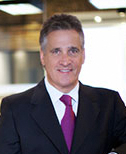© 2014 The Texas Lawbook.
By Natalie Posgate
Staff Writer for The Texas Lawbook
(May 15) – A chill swept through lawyers at Baker Botts Thursday when a Dallas jury ruled that the Texas-based law firm acted negligently more than a decade ago when it represented two competing technology companies vying for similar patent protections, but didn’t disclose the potential conflict to its client.
The jury placed damages against Baker Botts at $40.5 million, which is about eight percent of the firm’s reported revenue in 2013.
But 30 seconds later, the warmth returned to their bodies when the five-woman and one-man panel also found that Addison-based Axcess International waited about a year too long to file its lawsuit against Baker Botts and, as a result, the 700-lawyer firm likely will not have to pay a dime.
Lawyers on both sides agree they plan to appeal the jury’s mixed verdict.

“Neither side is jumping up or down,” said Fort Worth attorney Jon Suder, who represented Axcess. “It’s a long way from over.”
Axcess sued Baker Botts in 2010 on claims that the law firm helped a competitor obtain patents for radio frequency identification (RFID) products while it was representing Axcess for the same venture.
Baker Botts says it did nothing wrong.
“We continue to believe that we lived up to the highest ethical standard and that the claims against us were unjust,” said Baker Botts General Counsel George Lamb. “The jury has entered a mixed verdict, but we are very pleased the verdict will result in a judgment in favor of Baker Botts.”

Legal experts who have been following the case say that Axcess faces an uphill battle on appeal because the appellate courts in Texas have been stingy when it comes to upholding significant damage awards in legal malpractice cases. Axcess will appeal the jury’s decision that the company failed to file its lawsuit within Texas’ statute of limitations for such claims, while Baker Botts will appeal the ruling that it was negligent, lawyers said.
Axcess hired Baker Botts in 1998 to advise it in general intellectual property matters and to help it draft, file and pursue patent applications for RFID technology. By mid- July, Baker Botts filed five patent applications on behalf of Axcess.
That same year, the law firm also agreed to represent Savi Technologies, Inc., a competitor of Axcess, on intellectual property matters – something that should have triggered the firm to run a conflict check and to notify Axcess of a potential conflict, Axcess claimed.
The company argued that Baker Botts knew early on that it had a conflict but never informed Axcess about it, despite multiple opportunities, because of money reasons.
In 2002, Axcess noticed a press release by Savi announcing a new product offering with pending patent applications, which seemed to infringe some of Axcess’ patents. Axcess called Baker Botts expressing its concerns, but Baker Botts again “failed to run a conflict check” and deflected the issue, lawyers for Axcess claimed during the three-week trial.
Axcess claims it did not find out about the conflict until seven years later during a patent infringement battle between another technology company, Aeroscout, and Savi. Aeroscout subpoenaed Axcess to testify about Baker Botts’ conflicting role in obtaining Savi patents to diminish the validity of the patents.
Even when Axcess contacted Baker Botts to discuss Aeroscout’s allegations, Baker Botts “continued to actively mislead Axcess about its knowledge of the conflict,” Axcess claimed in its lawsuit.
In its lawsuit, originally filed in 2010, Axcess charged Baker Botts with negligence, breach of fiduciary duty and material non-disclosure.
Suder said that due to Texas statutes of limitations, plaintiffs have two years to file a lawsuit with negligence claims and four years for breach of fiduciary duty claims after realizing damage. Axcess claimed that it did not realize Baker Botts’ conflict of interest until 2009, when Aeroscout subpoenaed the company.
But because the jury determined Axcess’ deadline for realizing Baker Botts’ conflict was in 2007, three years before it actually filed the lawsuit, neither of those claims will likely recover monetary damages for Axcess at the lower court level.
The jury’s reasoning for the 2007 date was tied to a May 2007 email exchange between Axcess and Savi regarding patent licenses related to Savi’s contracts with the Department of Justice that Axcess was seeking to obtain from Savi. The email, which top executives at Axcess received, included documents that revealed Baker Botts was representing Savi.
Despite overall winning on the negligence count (the jury found Baker Botts 90 percent responsible and Axcess 10 percent responsible), Suder expressed disappointment about the jury’s 2007 determination.
“You feel like you won, but you feel like you lost,” he said. “While our claim would have been no good for negligence, it would have been for breach of fiduciary duty.”
Along with Suder, Axcess’ legal team consisted of Dallas attorney Steve Aldous of Forshey Prostok and Glenn Orman, who works with Suder at Friedman Suder & Cooke.
Baker Botts was represented by Murray Fogler, Jas Brar and Michelle Gray of the Houston litigation boutique Beck Redden and Paul Koning and Brent Basden of Koning Rubarts in Dallas.
© 2014 The Texas Lawbook. Content of The Texas Lawbook is controlled and protected by specific licensing agreements with our subscribers and under federal copyright laws. Any distribution of this content without the consent of The Texas Lawbook is prohibited.
If you see any inaccuracy in any article in The Texas Lawbook, please contact us. Our goal is content that is 100% true and accurate. Thank you.
